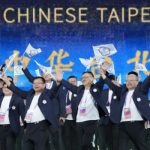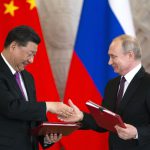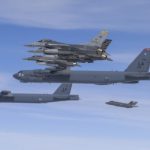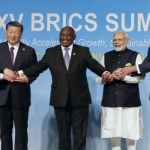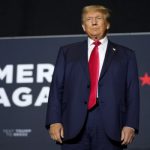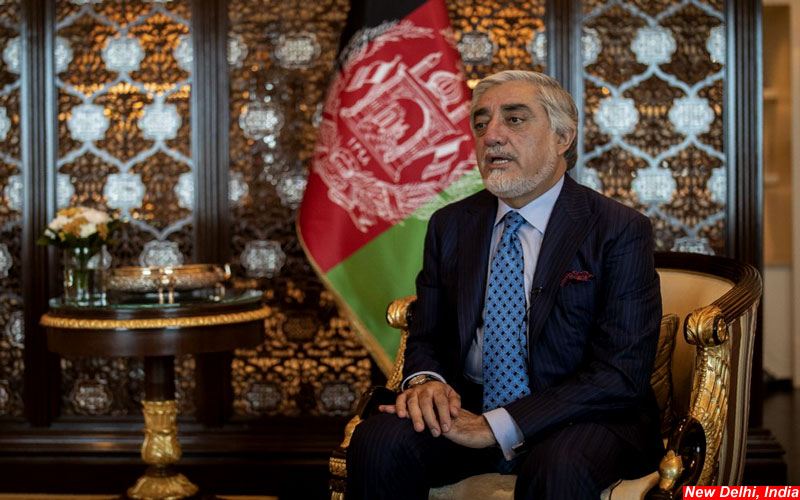
NEW DELHI (AP) — Afghanistan’s chief peace envoy said Saturday that India’s civil and military leadership are supportive of an inclusive, peaceful settlement of the Afghan peace process and that Kabul’s interactions with New Delhi are expected to further deepen in the coming weeks and months.
In an interview with The Associated Press in the Indian capital, Dr. Abdullah Abdullah said that while the issue of Afghanistan involves the international community at large, he hopes that India will play an important role in the peace process by “encouraging the voices of tolerance and coexistence.”
“India also espouses for a peaceful Afghanistan which is in peace within the country and a democratic Afghanistan which does not harbor terrorist groups,” Abdullah said. “This is in line with the aspirations of the people of Afghanistan and the sacrifices our people have made for it.”
Dr. Abdullah’s New Delhi visit comes at a crucial time for India, which is looking to cement its efforts to protect its strategic interests in Afghanistan amid Pakistan’s growing influence in the region and an expected U.S. troops withdrawal from Afghanistan. It also signals a gradual shift in India’s approach in dealing with the ongoing Afghan peace process that began two years ago, for which it has been invited to take part in for the first time.
As chief of Afghanistan’s High Council for National Reconciliation, Abdullah oversees the government side in negotiations. This is his first visit to India after the formation of the new government in Kabul following last year’s election.
Dr. Abdullah’s India trip, which is taking place a week after his visit to Pakistan, comes as Kabul’s government negotiators are meeting with Taliban representatives in Qatar to plot a future course for a post-war Afghanistan.
Speaking at a luxury hotel in New Delhi, Abdullah said he was encouraged by the talks he had with the Indian leadership that centered around “peace and stability in the region.”
He said Indian leadership assured him that India will back any settlement acceptable to the Afghan people.
Dr. Abdullah, who landed in India on Tuesday, has so far met with Prime Minister Narendra Modi, Foreign Minister Subrahmanyam Jaishankar and other high-ranking Indian officials, including the army chief, Bipin Rawat.
A statement released by India’s foreign ministry on Thursday said that in his meeting with Abdullah, Modi called for “India’s commitment towards sustainable peace and prosperity in Afghanistan and welcomed efforts towards a comprehensive and permanent” cease-fire in Afghanistan.
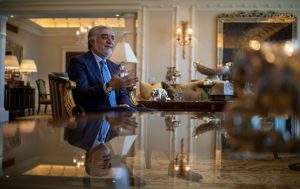
Over the years, India has provided Afghan security forces with operational training and military equipment, even though it has had no troops on the ground. It is the region’s largest provider of development aid to Afghanistan and has often expressed concerns over violence by the Taliban.
Still, India has long been reluctant in its direct engagement in Afghanistan peace talks. But earlier visits to India by the U.S. special envoy to Afghanistan, Zalmay Khalilzad, and senior Afghan politician Abdul Rashid Dostum have signified New Delhi’s new willingness to play a larger role in the peace process.
In May, Khalilzad called for an increased role for India in the Afghan peace process and asked New Delhi to engage directly with the Taliban.
On Sept. 12, an Indian delegation attended the inaugural ceremony of the intra-Afghan negotiations in Doha. The ceremony was also virtually attended by Jaishankar. His participation was seen by many observers as India shedding its reluctance in engaging directly with the Afghan government and the Taliban.
Reacting to the claims made by President Donald Trump on Thursday when he asserted that all U.S. troops will be out of Afghanistan by the end of the year, Abdullah said even though he did not know the details of the announcement, an early withdrawal could have “consequences.”
“We are not oblivious to realities on the ground, but it will not lead to one side prevailing over the other,” said Dr. Abdullah, adding that the rise in violence in the region was hindering a peaceful settlement of the conflict.
Dr. Abdullah acknowledged Saturday that the Taliban is expected to have a significant influence on what the future state of Afghanistan would look like, but said it was in the interest of his country that the state establishes and strengthens its relations in the region and beyond.
“We are talking about a situation where Taliban have a role to play together with the rest of the people of Afghanistan while having a lot of different points of views, but at the same time accepting the basic fact that there is no solution or a winner through war,” Dr. Abdullah said.
He also called for a “humanitarian cease-fire” so that Afghanistan and its international partners could address some key issues like rampant corruption and an underfunded education system that observers say have been plaguing the country for long.
“The sooner we get to a settlement, the better it will be for the people of Afghanistan to put an end not only to the violence and the suffering but also to issues related to the concerns of the people,” Dr. Abdullah said.
____
Newsroom | theworldmail.co.uk
Source/Contribution/Photo Credit by Associated Press

